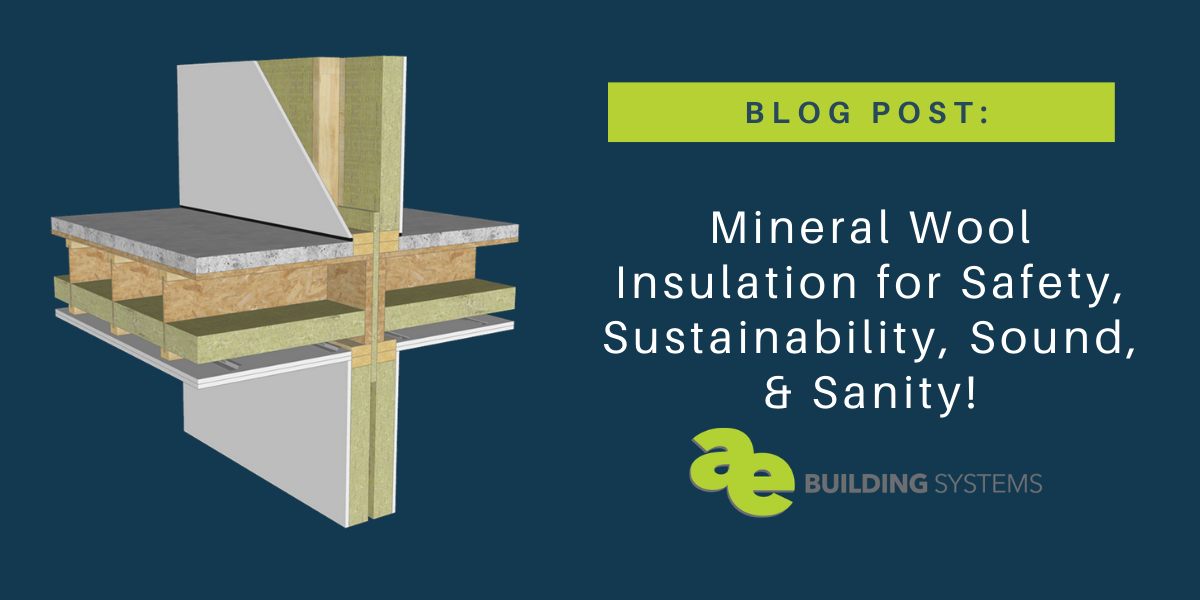Sometimes homes are built in places with noises we can’t control. Whether it’s a plane overhead, a train nearby, or a loud neighbor who likes to sing off-pitch. If you find that there are noises you’d like to keep in, or out, from your sanctuary of a home, the insulation you use is quite important. The cotton-candy looking stuff simply won’t do. You need something more durable, more sustainable, more sound-blocking, and all around so much more.
When people are looking for increased sound barriers, more sustainable temperature control, safer materials from rot and fire, they typically turn to mineral wool insulation. And, we can see why! Let’s take a quick look at why this stuff is so amazing!
Mineral Wool Insulation is considered ideal for a number of reasons:
Fire Resistance
Mineral wool is a winner for so many situations because it has a melting point of 2150 degrees F. Compare that with the average range of house fires of 1200-1400 degrees F. You realize quickly that the material simply doesn’t catch fire in an average residential fire, and as a result, it doesn’t allow fire to spread. Mineral wool is ideal as well because when heated, it doesn’t release toxic gases.
Rot Resistance
Mineral wool insulation is an ideal material in areas typically prone to rot. Mineral wool insulation is permeable, which allows vapor to pass through, which is extremely helpful in Vapor Open Air Tight design. It also has no food source, so mildew, mold, and bacteria have no interest in setting up shop around this material. If concerns for mold or allergies are paramount, then mineral wool is a material you want to consider.
Sound Dampening
Mineral wool has been a go-to insulation when you need quality acoustical barriers. Mineral wool is denser than conventional insulation, making it ideal for minimizing and absorbing sound. Environments that require better acoustical barriers, like concert halls, theaters, and classrooms, employ mineral wool. In a home, it can be a great asset for those that simply want a quieter home.
Versatility
Mineral wool insulation is a very versatile product that allows application in many different situations. There are many ways to detail around windows and doors to include thermal buck, frame extensions, sill extensions, all while using mineral wool to reduce thermal bridging. (Learn more about continuous insulation and how mineral woold can support this technique.) Plus, mineral wool is the perfect addition for renovating with a continuous insulation approach.
Durability
Mineral wool insulation has a history of longevity, with minimal shrinkage, crumbling, or changing shape even with major temperature changes. It requires very minimal maintenance and rarely needs to be replaced. The natural properties of the mineral wool consistency provide excellent thermal protection from extreme climates (both warm and cool). This makes for a more comfortable home AND a more comfortable energy bill!
Mineral wool is clearly a great choice for so many applications. Whether the main concern is safety, sound, sustainability, or some combination of these, mineral wool insulation can be helpful for both commercial AND residential projects. Yes, there are other options for continuous insulation in a project, but we’ve found that when building for the long term, nothing beats mineral wool insulation.
At AE Building Systems, we work with mineral wool on many types of projects, especially ones that are working to be Passive House designs. We carry quality products for mineral wool insulation, including Rockwool Comfortboard 80 and Rockwool Comfortboard 110. Rockwool has been a great partner to the construction community for years and our AE Building Systems team is always here to help answer your questions about material choices and specific products.


Leave a Reply